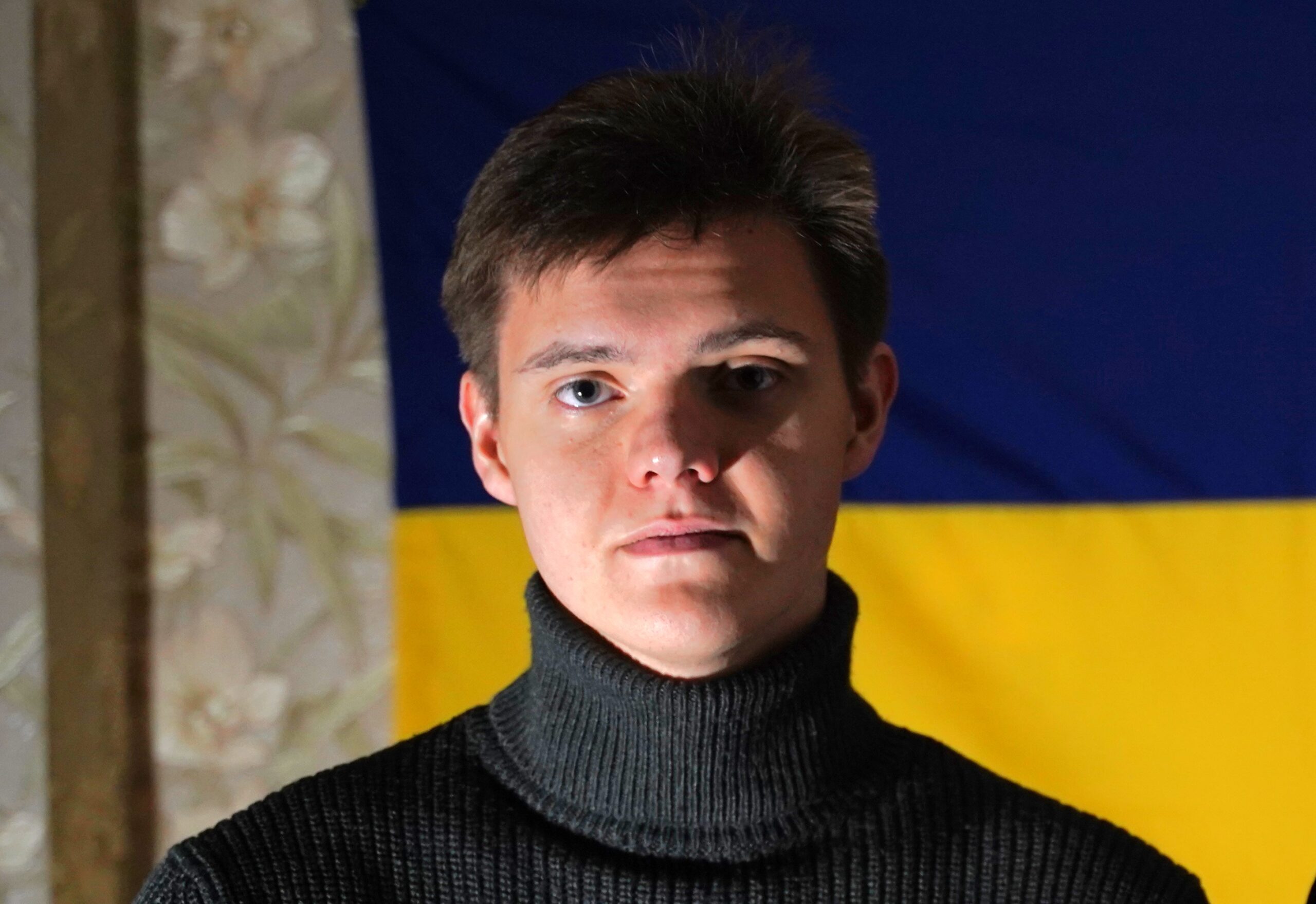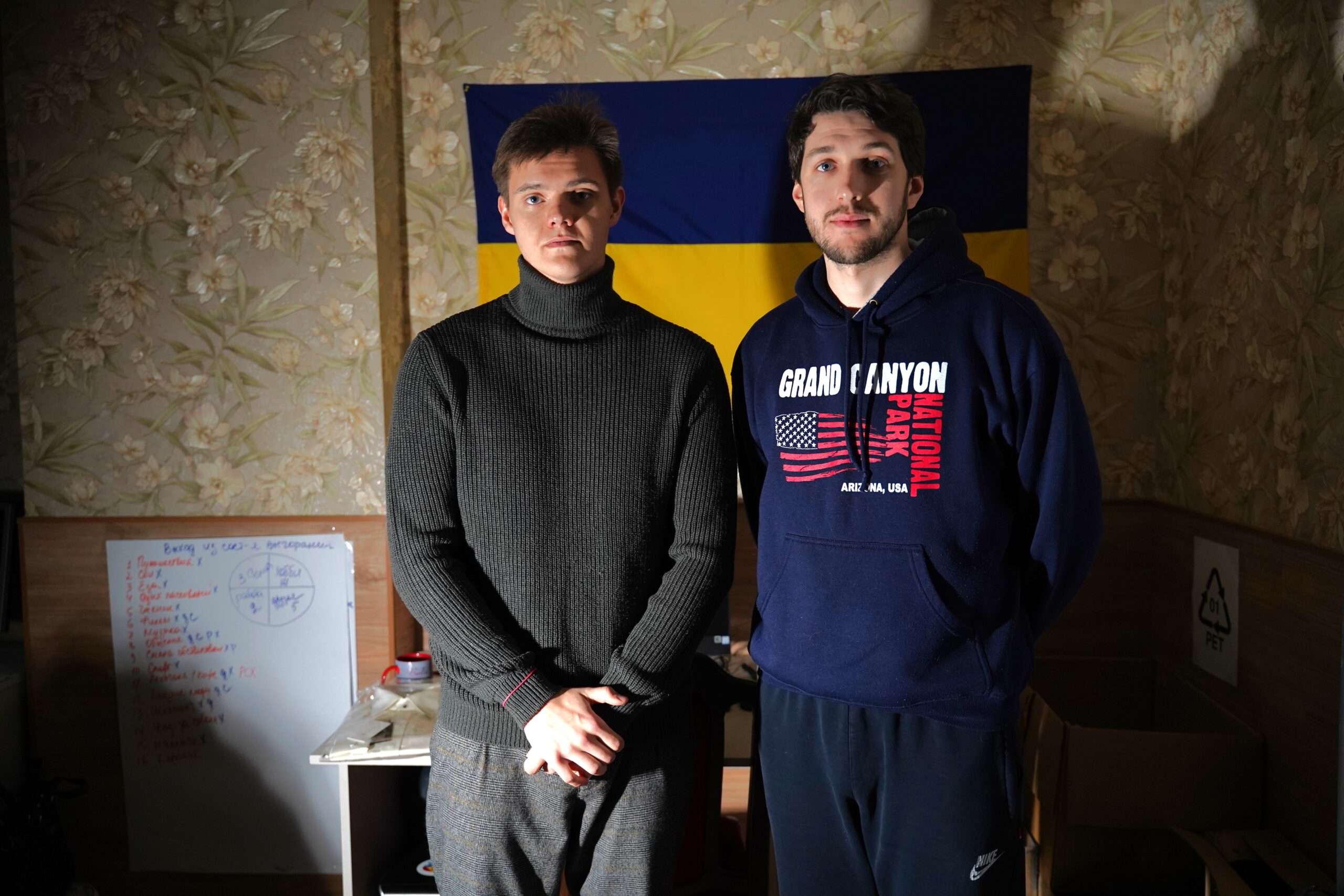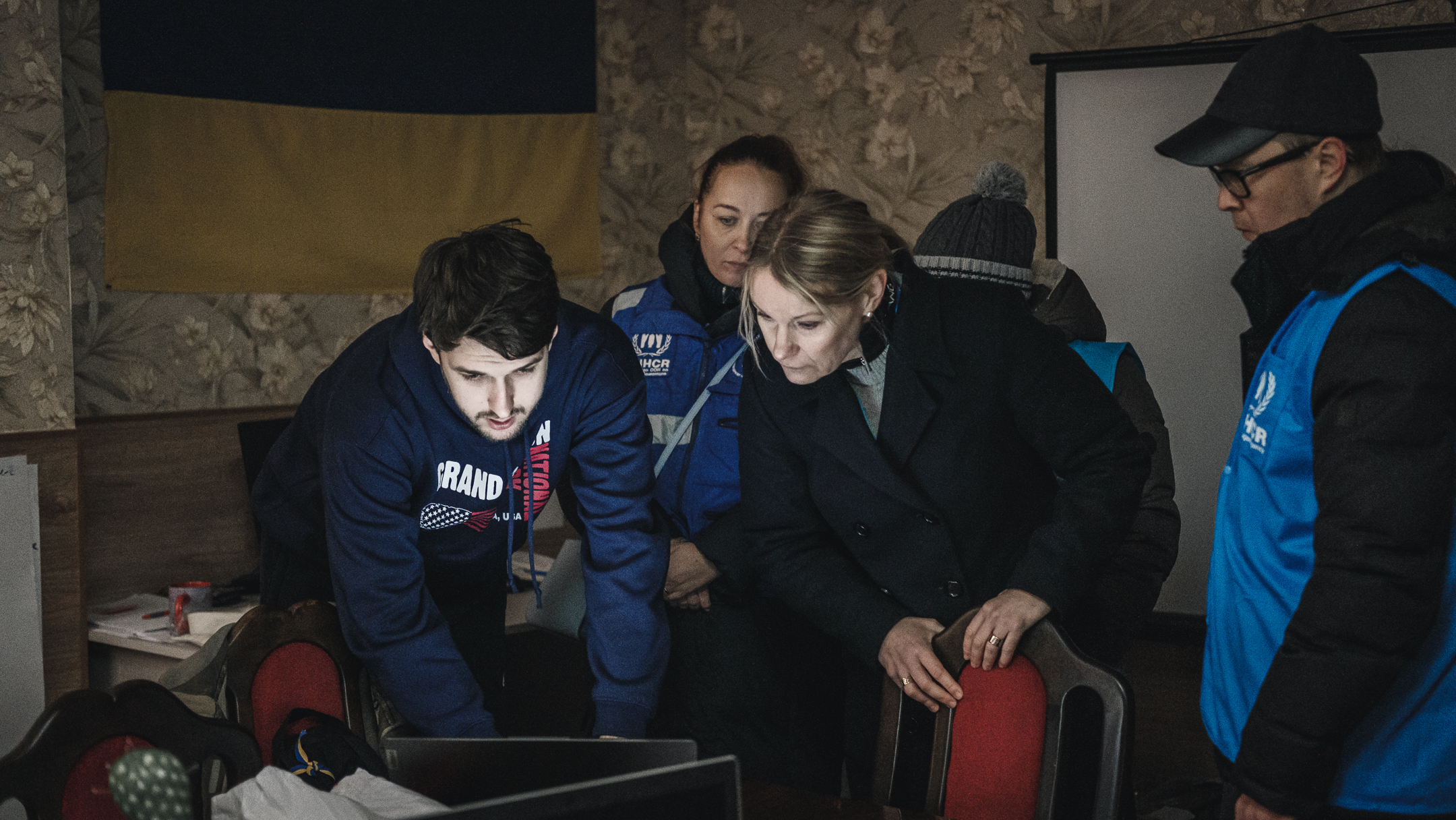UNHCR’s local partner NGO “Proliska” works with the Kharkiv Humanitarian Coordination Hub to reach the most vulnerable people, including in the retaken areas in Kharkivska oblast.
In the beginning of 2022, 20-year-old Oleh volunteered with a non-governmental organisation in Kharkivska oblast, delivering humanitarian aid to frontline villages with dire humanitarian needs. These villages are amongst those most impacted by the war, with regular shelling damaging and destroying homes and other civilian infrastructure. About two months ago, a friend told him that the Humanitarian Hub in Kharkiv was looking for people who could help coordinate the work of all volunteer organisations to ensure that the aid reaches vulnerable families and communities across the oblast.
“Currently, there are 160 volunteer organisations that work in Kharkivska oblast. Our goal is to ensure the most effective allocation of resources. We collect information about the needs, verify it with people on the ground and transfer all the information to the volunteer organisations. We also track where and what is delivered and update detailed maps of all humanitarian activities,” explains Oleh.

The centre works in several areas – the coordination of humanitarian aid and evacuation, the issuance of humanitarian passes for the retaken areas, and the coordination of support to IDPs in collective sites.
The work was so demanding that Oleh, a student in cybersecurity at a Kharkiv University, has almost no time left for studies, as he works around the clock at the centre. “Ukraine and its people are more important than my studies. My priorities changed during the war. Currently, I hardly have time to study,” he says.
Despite the blackout, the Humanitarian Coordination Hub in Kharkiv continues to work. UNHCR/Victoria Andrievska
In the centre, he coordinates the provision of social support to displaced people who currently live in dormitories and cannot return home due to ongoing hostilities. “We actively work on providing the IDP dormitories with electrical devices for heating and cooking. Nowadays, even such small things as a kettle or a heater can save a life and warm a person,” Oleh says.
Oleh’s colleague, 27-year-old Oleksandr, works on collecting data from volunteer organisations that have access to the areas where the Government has regained control in Kharkivska oblast. “There are many organisations and individual volunteers who want to help and deliver food items, hygiene kits, medicine, construction materials or provide evacuation services”, explains Oleksandr. “Based on this data, we create an online map that allows humanitarians to see the most up-to-date needs of the people in various settlements across the oblast and see where assistance was already delivered. This helps them to plan their delivery of humanitarian aid and to map the response,” adds Oleksandr.
Oleksandr adds that the humanitarian needs were high since the beginning of he war, especially during the winter, when people were asking for non-electric heaters and firewood so they could keep warm amidst the blackouts caused by ongoing attacks on energy infrastructure across Ukraine.
“We prioritise vulnerable groups of people and try to connect them to the volunteers who have the opportunity to help,” explained Oleksandr.

One of the organisations the centre is working with is UNHCR’s local partner Proliska which distributes various humanitarian items – matresses, blankets, bed linen, solar lamps, hygiene kits in coordination with the local authorities and the Hub to ensure that vulnerable people receive much needed support.
Proliska also provides psychological support to people living in the areas that experienced severe hostilities and have been retaken by Ukraine in recent weeks. Psychologists strive to identify trauma at the early stage to prevent deeper problems people may have as the war rages next to their settlements.
Both young men are very driven to carry on their work in the Hub. “My motivation is to help the country in which I was born – my Motherland, which was attacked and where civilian Ukrainian people are killed and terrorised, where their homes have been shelled and destroyed,” says Oleksandr.
UNHCR Representative Karolina Lindholm Billing shared her admiration for volunteers’ work. “The government and civil society are doing incredible work to address huge humanitarian needs across Ukraine, including here in Kharkivska oblast. UNHCR is working closely with the administration, local authorities, with grassroots organisations to achieve our shared goal – to help the most vulnerable people live through the hardships caused by the war,” UNHCR Representative said.

Since the beginning of the Russian Federation’s full-scale invasion of Ukraine in February, UNHCR has contributed to 56 humanitarian convoys in Kharkivska oblast alone and has assisted over 101,900 people with housing repairs and emergency shelter kits, essential items like mattresses, blankets and hygiene kits, cash, and protection support, including legal and psychosocial assistance.
UNHCR collaborates with humanitarian hubs located in other cities, too. One such example is the “Hostyna Khata” humanitarian hub in Odesa city, which has been operational since March 26, 2022. The center was established by volunteers with the backing of the Odesa city authorities, at one of the local schools . At this hub, 87 dedicated volunteers, including 64 internally displaced persons (IDPs) from Mariupol, Mykolaiv, Kherson, Melitopol, and Izyum, work tirelessly six days a week to provide assistance to people in need.
Each day, the center extends its support to over 500 families of internally displaced persons (IDPs) and 150 local families residing in Odesa. A wide range of services is offered at the center to assist individuals in need. These services encompass the provision of essential items such as food, personal hygiene products, household kits, clothing, mattresses, diapers, toys, solar lamps, bed linen, and medicines. Additionally, the center offers legal counseling and mental health services to address the emotional well-being of those seeking assistance. Hostyna Khata is an operational partner of UNHCR for distribution of non-food items.
Share on Facebook Share on Twitter